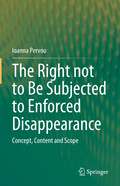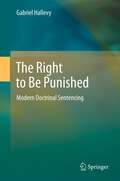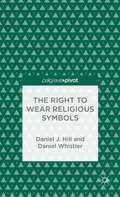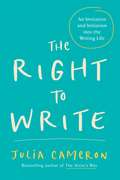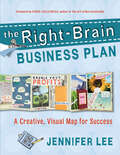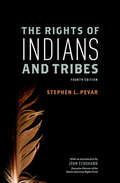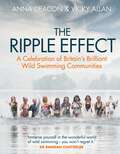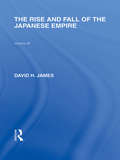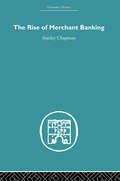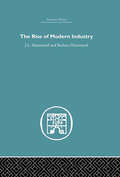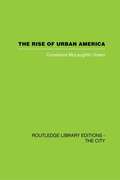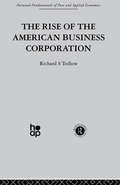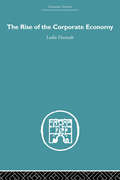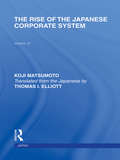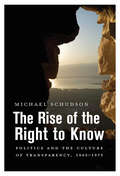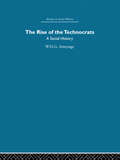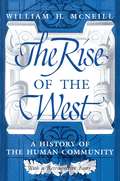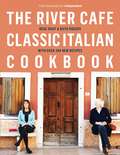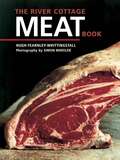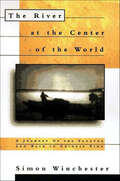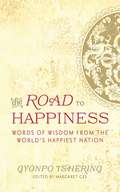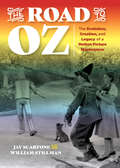- Table View
- List View
The Right not to Be Subjected to Enforced Disappearance: Concept, Content and Scope
by Ioanna PervouThis book offers a distinctive approach to the right not to be subjected to enforced disappearance. Over the last decade, the entry into force of the UN Convention for the Protection of All Persons from Enforced Disappearance has brought to the forefront of legal discussion the need to effectively address the practice of disappearance. Yet, there are still obstacles to combatting it, which are in part due to a limited understanding of the right’s underlying concept, content and scope.This book examines the phenomenon and definition of enforced disappearance and sheds new light on the right against disappearance. Presenting a doctrinal appraisal of the norm’s legal value, it suggests that the right against enforced disappearance holds a customary value, while also arguing that it has since attained a jus cogens status. Lastly, it examines in detail the rights to truth and reparation and how regional and national courts have interpreted these norms. It assesses the UN Convention’s dynamics and considers whether the lack of a right against disappearance embedded in regional human rights systems affects individuals’ protection.The book provides an overview of key jurisprudence on disappearances, making it of benefit to both practitioners and theorists of international law.
The Right to Be Punished
by Gabriel HallevyDoes an offender have the right to be punished? "The right to be punished" may sound like an oxymoron, but it is not necessarily so. With the emergence of modern criminal law, the offender gained the right to be punished by rational criminal law rather than being lynched by an angry mob. The present-day offender may have the right to be punished by doctrinal sentencing rather than being subjected to verdicts based on vague, unclear, and uncertain principles. In modern criminal law, the imposition of criminal liability follows accurate and strict rules, whereas there are no similar rules for the imposition of punishment. The process of sentencing is vague and obscure, as are the considerations used for the imposition of punishments. The objective of the present book is to propose a comprehensive, general, and legally sophisticated theory of modern doctrinal sentencing. The challenges of such a legal theory are plenty and complex. In addition to increasing clarity and certainty, modern doctrinal sentencing must deal with modern types of delinquency (e.g. organized crime, recidivism, corporate offenders, high-tech offenses, etc.) and modern principles of criminal law. Modern doctrinal sentencing must serve to ensure optimal sentencing.
The Right to Wear Religious Symbols
by Daniel J. Hill Daniel WhistlerClearly presenting the case-law concerning Article 9 of the European Convention of Human Rights, this is a lively and accessible analysis of a key issue in contemporary society: whether there is a human right to wear a religious symbol and how far any such right extends.
The Right to Write: An Invitation and Initiation into the Writing Life (Artist's Way)
by Julia CameronWhat if everything we have been taught about learning to write was wrong? In The Right to Write, Julia Cameron's most revolutionary book, the author of the bestselling self-help guide The Artist's Way, asserts that conventional writing wisdom would have you believe in a false doctrine that stifles creativity. With the techniques and anecdotes in The Right to Write, readers learn to make writing a natural, intensely personal part of life. Cameron's instruction and examples include the details of the writing processes she uses to create her own bestselling books. She makes writing a playful and realistic as well as a reflective event. Anyone jumping into the writing life for the first time and those already living it will discover the art of writing is never the same after reading The Right to Write.
The Right-Brain Business Plan: A Creative, Visual Map for Success
by Jennifer LeeMillions of artists, entrepreneurs, crafters, and solopreneurs dream of making a living doing what they love. But turning their vision into a viable business plan can feel like trying to fit a square peg into a round hole. Jennifer Lee knows what it’s like to make the entrepreneurial leap — and how to do it successfully. The key is showing creative types how to use — rather than stifle — the imagination and intuition that make them creative in the first place. Lee’s illustrated, colorful worksheets and step-by-step instructions are playful yet practical, enabling readers to get down to the essential business of defining their vision and nailing down plans for funding, marketing, networking, and long-term strategy. Both budding and seasoned business owners will benefit from Lee’s wonderfully original approach. Discover how to: • Develop a financial plan with fun and flair • Select your circle of support to get the work done • Clarify your business values and goals • Paint a picture of your business landscape • Understand your competition and what makes you stand out from the crowd • Identify your perfect customers and create a marketing plan to reach them • Map out concrete action steps to bring your Right-Brain Business Plan to life
The Rights Of Persons With Disabilities Act, 2016
by Government Of IndiaThe Rights Of Persons With Disabilities Act, 2016 contains 17 chapters.
The Rights of Indians and Tribes
by Stephen L. PevarThe Rights of Indians and Tribes, first published in 1983, has sold over 100,000 copies and is the most popular resource in the field of Federal Indian Law. The book, which explains this complex subject in a clear and easy-to-understand way, is particularly useful for tribal advocates, government officials, students, practitioners of Indian law, and the general public. Numerous tribal leaders highly recommend this book. Incorporating a user-friendly question-and-answer format, <P> The Rights of Indians and Tribes addresses the most significant legal issues facing Indians and Indian tribes today, including tribal sovereignty, the federal trust responsibility, the regulation of non-Indians on reservations, Indian treaties, the Indian Civil Rights Act, the Indian Gaming Regulatory Act, and the Indian Child Welfare Act. This fully-updated new edition features an introduction by John Echohawk, Executive Director of the Native American Rights Fund.
The Ripple Effect: A Celebration of Britain's Brilliant Wild Swimming Communities
by Anna Deacon Vicky AllanA Beautifully Photographed Swimming Book“Immerse yourself in the wonderful world of wild swimming - you won't regret it.” -Dr. Rangan ChatterjeeDive into the wonderful world of wild swimming with a series of photographs by Anna Deacon that captures the wonderful world of diving.Forging friendships in the water. Enter the world of aquatics and learn about the community of swimmers that Britain’s wild swimming creates. Wild swimming isn’t just a pastime; it’s an ocean of connection that attracts swimmers across Britain and draws people from all walks of life to dive deep and find inspiration in the water.A swimmer’s paradise. The Ripple Effect showcases all types of swimmers. From fans of the wim hof method to those who want to take their swimming exercises to the open water, this book of aquatic photography is the perfect gift for swimmers.More than just pictures. Anna Deacon offers a community to connect. With visually stunning photographs depicting wild swimmers in Britain’s natural aquatic habitats, you’ll feel just as eager to go diving for your own wild adventure.Inside, you’ll find: Authentic photography showcasing an array of wild swimming communitiesSwimming stories that inspire, encourage, and laughThe wonderful world of wild swimming and why it’s so popular in BritainIf you liked Shaping Surf History, Comp, or Women Making Waves, or Winter Swimming, you’ll love The Ripple Effect.
The Rise and Fall of the Japanese Empire (Routledge Library Editions: Japan)
by David H JamesThis volume is a history of the Japanese drive for the conquest of Greater East Asia. It includes an account of the Malayan campaign and the Fall of Singapore, followed by an outline of the dominant features of the campaign in S E Asia and the Pacific and ending with the attack on Japan and the unconditional surrender. As a prisoner in Tokyo, the author was able to observe the reactions of the people and the government to the bombing of Japan, and by revealing their overwhelming defeat, to dispose of the fiction that surrender was brought about by two atomic bombs. The outstanding value of the work is its analysis of the fundamental problems of Japan.
The Rise of Merchant Banking
by Stanley ChapmanThis is the first serious history of merchant banking, based on the archives of the leading houses and the records of their activities throughout the world. It combines scholarly insight with readability, and offers a totally new assessment of the origins of one of the most dynamic sectors of the City of London money market, of the British economy as a whole and of a major aspect of the growth of international business. Dr Chapman has researched new material from the archives of Rothschilds, Barings, Kleinwort Benson and other leading houses together with a wide range of archives and published work in Europe, America and South Africa to trace the roots of British enterprise in financing international trade, exporting capital, floating companies, arbitrage, and other activities of the merchant banks. While mindful of the subtleties of international financial connections, this book assumes no previous acquaintance with the jargon of banking, economics and sociology. It will therefore prove equally interesting to students of history, business and finance, and offers a 'good read' to anyone interested in the City of London and the international economy.
The Rise of Modern Industry (World History Ser. #No. 48)
by Barbara Hammond J.L. HammondFirst Published in 2005. Routledge is an imprint of Taylor & Francis, an informa company.
The Rise of Urban America
by Constantine McLaughlin GreenThe rise of cities in the United States from the early seventeenth century to the 1960s is the subject of this sophisticated and witty appraisal by a Pulitzer Prize historian. Constance McLaughlin Green traces the forces - economic, political, social - that led to today's urban civilization, beginning with the growth of colonial seaports and local government, the rise of new cities that competed for wealth and power with the older cities, the spread of industrialization, transportation and communications that made complex city life possible. She discussed the influence of city life on art and architecture, the impact of depression and prosperity upon urban centres, and analyses present-day problems - race-relations, the population explosion, automation, the rise of suburbia, and the development of the 'megapolis' that links city with city in one vast urban interstate region. This book was first published in 1966.
The Rise of the American Business Corporation
by R. TedlowThis title presents an historical survey of the American business corporation from the colonial era to the present day.
The Rise of the Corporate Economy
by Leslie HannahFirst published in 1976, this much acclaimed book looks at the story of how today's large corporations have superseded the small competing firms of the nineteenth century. The long-run analysis confirms that the crucial periods in the formulation of the modern corporate system were the 1920's and 1960's. The merger wave of these decades was associated with a desire to improve the efficiency of Britain’s industrial organization, and the author shows that it was in a large measure responsible for the trend improvement (by historical if not international standards) in Britain's growth performance. Students of business, economic history and industrial economics will all welcome the return to print of a notable contribution to the continuing debate on the evolution and control of the corporate manufacturing sector.
The Rise of the Japanese Corporate System (Routledge Library Editions: Japan)
by Koji MatsumotoJapan’s economy is invariably seen as a prime example of a capitalist system, and a consideration of the elements upon which the Japanese economy is founded seems to lead inexorably to the conclusion that Japan is an established member of the group of highly developed capitalist nations. Yet a country’s internal mechanisms can differ markedly from the system as perceived externally. Although not yet widely recognized, a new kind of economic system has developed in Japan, a system that differs greatly from traditional capitalism. The author of this book has observed Japanese industry from the inside. He provides detailed explanations of the unique features of the new corporate system and how it differs from the system of orthodox capitalistic corporations.
The Rise of the Right to Know: Politics and the Culture of Transparency, 1945-1975
by Michael SchudsonAs Michael Schudson shows in The Rise of the Right to Know, modern transparency dates to the 1950s, 1960s, and 1970s―well before the Internet―as reform-oriented politicians, journalists, watchdog groups, and social movements won new leverage. At the same time, the rapid growth of higher education after 1945, together with its expansive ethos of inquiry and criticism, fostered both insight and oversight as public values.
The Rise of the Technocrats: A Social History
by W.H.G. ArmytageFirst published in 2006. Routledge is an imprint of Taylor & Francis, an informa company.
The Rise of the West: A History of the Human Community
by William H. McNeill“The most stimulating and fascinating book that has ever set out to recount and explain the whole history of mankind.” —H. R. Trevor-Roper, The New York Times Book ReviewThe Rise of the West, winner of the National Book Award for history in 1964, is famous for its ambitious scope and intellectual rigor. In it, McNeill challenges the Spengler-Toynbee view that a number of separate civilizations pursued essentially independent careers, and argues instead that human cultures interacted at every stage of their history. The author suggests that from the Neolithic beginnings of grain agriculture to the present major social changes in all parts of the world were triggered by new or newly important foreign stimuli, and he presents a persuasive narrative of world history to support this claim.In a retrospective essay titled “The Rise of the West after Twenty-five Years,” McNeill shows how his book was shaped by the time and place in which it was written (1954–63). He discusses how historiography subsequently developed and suggests how his portrait of the world’s past in The Rise of the West should be revised to reflect these changes.“The most lucid presentation of world history in narrative form that I know. While the story leads up to the predominance of the West in the modern age, it also takes full account of the expansion of civilization eastwards, as well as westwards, from its birthplace in the Fertile Crescent. I am sure that anyone who reads this book will gain from it a greater insight into the long and complicated historical process that has resulted in the world in which we are living today.” —Arnold Toynbee, author of A Study of History
The River Cafe Classic Italian Cookbook
by Ruth Rogers Rose GrayThirty years after its doors first opened, The River Café remains one of London's most iconic restaurants, loved for its innovative Italian food. Pioneering chefs Rose Gray and Ruth Rogers together changed the face of Italian food in Britain, championing seasonality well ahead of their time from their West London kitchen, which won a Michelin star in 1998 and has kept it ever since. The restaurant helped launch the careers of Jamie Oliver and Hugh Fearnley-Whittingstall, to name but two. Over the course of decades, Rose and Ruth visited Italy time and again, fascinated by the subtleties of dishes from the many different, and diverse, regions of the country. Their unique approach to Italian farmhouse cooking was learned from local mothers, grandmothers, cousins and wine makers who invited them into their kitchens and shared wisdom and precious family recipes. This book gathers together Rose and Ruth's personal interpretations of those heirloom recipes. It's a celebration of the real, classic food of Italy; the traditional, regional food they ate on their travels; and the food they went on to cook at the restaurant and at home. These are the recipes they became well known for, as well as some that are cooked less and less in Italy these days and which Rose and Ruth longed to preserve and pass on.
The River Cottage Cookbook
by Hugh Fearnley-WhittingstallFirst published in the United Kingdom in 2001, THE RIVER COTTAGE COOKBOOK quickly became a hit among food cognoscenti around the world. Now tailored for American cooks, this authoritative and animated ode to eating well is one part manifesto and one part guidebook for choosing and storing food grown in the garden, butchered from prize animals, or foraged or caught locally. Fearnley-Whittingstall writes with humor, wit, and clarity, bringing American readers what his legions of British fans have enthusiastically embraced: the best techniques and recipes for getting the most out of simple, superior food, while supporting the environment, vibrant local economies, and resourceful use of plants and animals.
The River Cottage Meat Book
by Hugh Fearnley-WhittingstallFirst published in the United Kingdom, THE RIVER COTTAGE MEAT BOOK quickly became an underground hit among food cognoscenti around the world. Now tailored for American cooks, this loving, authoritative, and galvanizing ode to good meat is one part manifesto on high-quality, local, and sustainable meat production; two parts guide to choosing and storing meats and fowl; and three parts techniques and recipes for roasting, cooking, barbecuing, preserving, and processing meats and getting the most out of leftovers. With this thought-provoking and practical guide, meat eaters can knowledgeably buy and prepare meat for better health and better living, while supporting the environment, vibrant local economies, and respectful treatment of animals.
The River at the Center of the World: A Journey Up the Yangtze and Back in Chinese Time
by Simon WinchesterA stunning tour of China, its people, and its history. Chosen as one of the best travel books of 1996 by the New York Times Book Review. Rising in the mountains of the Tibetan border, the Yangtze River, the symbolic heart of China, pierces 3,900 miles of rugged country before debouching into the oily swells of the East China Sea. Connecting China's heartland cities with the volatile coastal giant, Shanghai, it has also historically connected China to the outside world through its nearly one thousand miles of navigable waters. To travel those waters is to travel back in history, to sense the soul of China, and Simon Winchester takes us along with him as he encounters the essence of China--its history and politics, its geography and climate as well as engage in its culture, and its people in remote and almost inaccessible places. The River at the Center of the World is travel writing at its best: lively, informative, and thoroughly enchanting.
The Road to Happiness: Words of Wisdom from the World's Happiest Nation
by Margaret Gee Gyonpo TsheringWith clear, simple prose, and poetic turns of phrase, this inspirational collection of quotations reflects the unique country of Bhutan and its universal embrace of compassion, understanding, and kindness. Some of the quotes are also a bit quirky and funny—why not? After all, this remarkable little kingdom in the Eastern Himalayas just may hold the secret to lifelong happiness. Renowned for their government edict that “gross national happiness is more important than gross national product,” the Bhutanese grounding in Buddhist ideals suggests that material and spiritual development should occur side by side—something we can forget too often. So dive into this inspiring collection of wisdom, proverbs, and general sage advice to help you on your own road to happiness—or at least put a smile on your face.Although, as the Bhutanese saying goes, You don’t have to smile if you are pleased, nor do you have to frown if you are displeased. People who do this don’t get so many wrinkles!One dream cannot rest on two pillows.Evil words are like poisonous flowers. Evil actions are like poisonous roots. It is more important to have good teeth in your head than a hat which fits properly on it. Just as there are green fertile pastures and barren plains, the same is true for the territory of the heart and mind.If you take the jungle away from a free, roaming snow leopard it will feel like a poor street dog.So give the gift of happiness today!
The Road to Oz: The Evolution, Creation, and Legacy of a Motion Picture Masterpiece
by William Stillman Jay ScarfoneThe Road to Oz is a complete retelling of how The Wizard of Oz was influenced and created, and attained its iconic status. The new volume by Jay Scarfone and William Stillman will reflect recent research and much more through newly discovered period interviews, media resources of the era, transcriptions and unique contemporary interviews with those who were there. Additionally, never-before-published imagery accompanies the text. In its truth and candor, this new historical contribution is ideal to tie-in with the 2018-19 80th anniversary of the 1939 movie.Tantalizing highlights of the text include:· A thorough synopsis of L. Frank Baum&’s The Wonderful Wizard of Oz (1900) and the script, inspired by the book, of the 1903 Broadway musical-comedy extravaganza.· An overview of the plots of prior silent film adaptations of Oz and how they influenced the M-G-M film.· An analysis of newly-discovered audio transcriptions of Wizard of Oz radio programs from 1931-32 and 1937-38—all of which were previously unknown.· A complete accounting of Sam Goldwyn&’s proposed (and aborted) 1934 Technicolor musical version of Oz starring Eddie Cantor (including commentary from Cantor&’s sole surviving child).· A thorough analysis of the October 10, 1938 M-G-M shooting script (provided by descendants of comedian and Cowardly Lion actor Bert Lahr) that predates the beginning of production by seventy-two hours.· Startling revelations about the operetta that seemingly inspired &“Over the Rainbow.&”· Judy Garland&’s trials and tribulations with the studio, including the threat that M-G-M was grooming a sound-alike who tested for Oz.· The supporting player who was cast in two roles in Oz&’s fantasy sequence—the second role revealed for the first time in Scarfone and Stillman&’s text.· The Munchkin midgets&’ pre-1939 Wizard of Oz connection.· Oz&’s film editor with a direct connection to Walt Disney and Snow White.· Studio nepotism, favoritism and politics at the height of Hollywood&’s golden age on the making of the world&’s most famous film.&“The Road to Oz not only delivers exciting, previously unpublished information and insight, but does so in an extremely well-cited format. This is absolutely a must-have for any Oz fan or film historian.&” —Sean Barrett, theatrical/film producer and artistic director, Land of Oz, North Carolina &“A new and wonderful book penned by the foremost Oz movie history authors. This is a must-read for all old and new Oz fans worldwide.&” —Roger S. Baum, author of Dorothy of Oz (on which the film Legends of Oz: Dorothy&’s Return is based) and great-grandson of L. Frank Baum&“Numerous books have celebrated the fan appeal of MGM&’s Wizard of Oz, but there&’s far more to this story than nostalgia. Scarfone and Stillman delve deep into the history of this landmark film, exploring its place in the pantheon of classic fantasy films, as well as fascinating details of production. The Road to Oz is an important addition to the film-history bookshelf.&” —J.B. Kaufman, film historian and author of The Fairest One of All: The Making of Walt Disney&’s Snow White and the Seven Dwarfs&“The Road to Oz is a gamechanger in the world of motion picture history books. Long considered the leading authorities on the making of The Wizard of Oz, Scarfone and Stillman have crafted decades of extensive research into a new and unparalleled historical recalling of the classic film.&” —Randy L. Schmidt, editor of Judy Garland on Judy Garland: Interviews and Encounters and author of Little Girl Blue: The Life of Karen Carpenter
